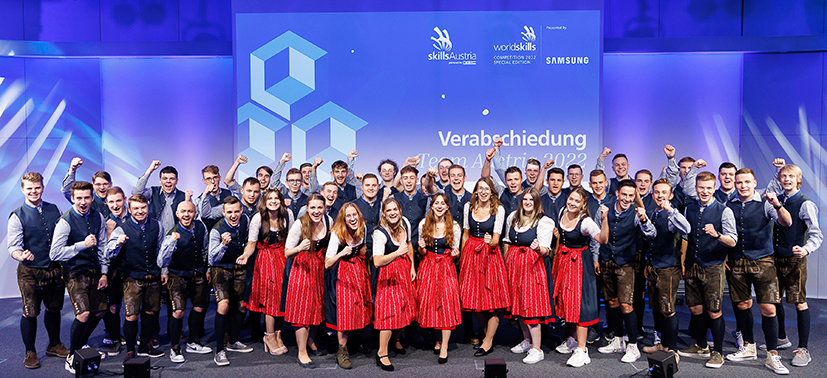ENERGY GLOBE AWARDS
People all around the world are committed to developing solutions for the most pressing environmental problems of our time – problems like resource scarcity, air and water pollution, erosion, climate change or dependence on fossil fuels. Although these solutions are readily available, they often remain unknown. Energy Globe gives them a voice, makes them visible to a large audience and encourages others to come up with their own innovative solutions.
With more than 180 participating countries, the Energy Globe Award is the world’s most important environmental award. Projects from all over the globe are submitted, ranging from small and simple initiatives to large scale high-end ones. The national winners of the Energy Globe Award are published in cooperation with UNIDO and have one thing in common: all of them have understood that the environment is protected by action not words.
THIS YEAR’S WINNERS ARE
"Community Rain Gardens with SuDS", United Kingdom 2022
Meristem Design Ltd has been delivering community Rain gardens with SuDS across London to help reduce the impact of flooding on communities and add more greenery to streets. Most of the fifty Rain Gardens are on the end of residential roads diverting surface rainwater from the sewer system. Local residents and school children have been involved in planting a variety of grasses, shrubs, and trees to encourage pollinating insects and to withstand the extra-warm summers. The rain gardens also incorporate an underground Sustainable Drainage System (SuDS). The rain gardens combined with the SuDS can absorb 50% more water than grass and help mitigate the impact of flooding in urban areas by allowing vegetation and plants to absorb most of the rainwater. Rain gardens are an effective solution to reduce the impacts whilst engaging with local communities and adding more greenery.
"Packamama's eco-flat bottles", United Kingdom 2022
Eco-flat bottles are enabling advancement in the wine industry by slashing carbon footprint and offering unbeatable supply chain efficiencies. These efficiencies are made possible thanks to the bottles’ flat shape to save space and being made entirely from 100% recycled PET to save weight and energy and contribute to circular economies. These improvements mean the bottle itself is 40% more spatially efficient and 87% lighter (just 63g) than a traditional round, glass wine bottle. Being flat, the bottles pack like books and in some instances can fit up to 91% more product on a standard UK pallet. Recyclability is fundamental to the design and the bottle is fully, easily and widely recyclable after use.
"Rural Mini-Grids Rwanda", Rwanda
ARC Power’s objective is the provision of affordable, reliable and clean off-grid solar energy for rural communities and businesses in Rwanda. ARC Power’s approach centres on the identification of sites that can support commercially viable operations, whilst generating significant cost savings to customers, alongside supporting sustainable development objectives regionally.
"Environmental Ecology Project (as part of the Turing Scheme)", Swaziland
Led by Kaya Responsible Travel, and working with ecology experts in Ecuador and Eswatini, this project offers a 15-day international training placement, whereby students can expand their existing knowledge of environmental ecology. Kaya has selected three areas of focus; African Savannah Ecology, Amazon Wildlife and Habitat Conservation, and Permaculture and Sustainable Land Management. The ultimate goal of this project is to increase student engagement in global environmental issues, and offer socio-economically disadvantaged young people the opportunity to travel in a responsible way.
THIS YEAR'S SPECIAL HONORARY PROJECTS ARE
"Water Filtration and Cookstoves", Guatemala
This first of its kind Gold Standard project in Guatemala is a partnership between Natural Capital Partners and Ecofiltro to distribute efficient stoves and water filters to families. The improved cookstoves reduce use of wood fuel by 60% compared to a traditional three stone fire. This prevents forest degradation and cuts around 100,000 tonnes of CO2 every year. These carbon reductions are independently verified and then sold to corporate clients around the world to offset their emissions, providing the finance needed for the project to grow. By reducing harmful indoor air pollution and providing access to safe water, the project also improves the health of rural families – who have reduced stomach illness and respiratory disease. The reduction in wood fuel used also saves families an average of $3.47/week and over 4 hours/week collecting wood.
"Haller Farmers App (HFA)", Kenya
The Haller Foundation’s project, HFA equips small-scale farmers in East Africa with affordable, organic & regenerative methods to grow food sustainably. It provides the knowledge & tools to reclaim land deemed ‘unfarmable’. HFA allows farmers to change what & how they farm, subsequently enabling them to withstand climate shocks & continue to earn a livelihood. The adaptive techniques mean they’re no longer hostage to climate change, poor nutrition & depleted soils.




